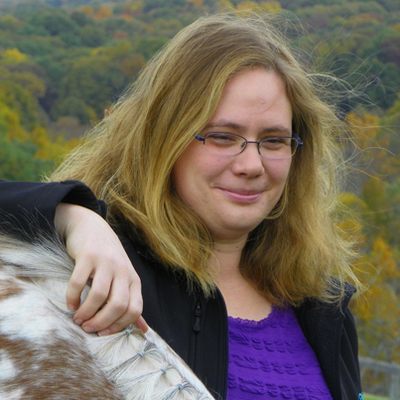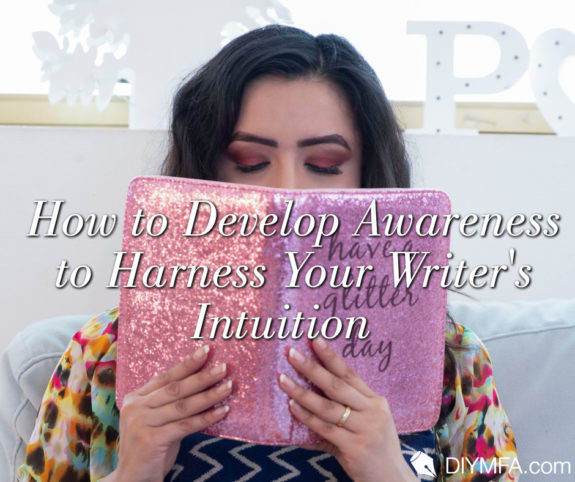If you remember my previous post, I said everyone has their own Writer’s Intuition. However, it takes conscious effort to become aware of this intuition. As such, I am going to share with you an exercise I did that helped me raise my own awareness.
A few years ago, I realized that I needed to get a better handle on my depressive episodes. I knew they followed my period in some fashion, but for the most part I would be miserable for several days until I realized my period was coming, and then I would start actively managing my depression. This affected my writing process as well, as my depression often caused me to think there was a problem with my current project, when it was really my emotional state. To increase my self-awareness, I created a simple exercise I called Laura’s Morning Routine.
Laura’s Morning Routine
Every morning for a year, I sat down and did two things:
I closed my eyes and I took stock of how I was feeling at that moment.
It was simply time for me to stop what I was doing and focus on how I was being. I generally spent no more than five minutes. At the beginning it felt a little weird because I had no experience with how I normally felt, and thus I had no idea what I was supposed to be feeling.
As time went on, I began to notice when things were off my baseline. Since I did this exercise at the same time and place each morning, I cut down on variables. I began to understand how I normally felt so I could more easily tell when things were different.
I rated the previous day on a scale of 1 to 5 in three categories: body, mind, and spirit.
- Body: Rated based on how much pain I was in that day. One was pain that got in the way of my day; three was how I normally feel (no pain); and five was amazing.
- Mind: Rated based on how much chatter or negative self-talk my mind generated that day. One was a near constant racket; three was normal (not none, but manageable); five was days when I was very positive, with a lot of gratitude and/or lots of great story ideas.
- Spirit: Rated on how much social anxiety I was dealing with. One was for days I was withdrawn and did everything to avoid attention; three was normal (chatting with people when they were around); four was days when I sought out interaction with people; and five was days when I would sing out loud with my music.
Making Your Exercise
- Set aside a time to do the exercise and try and make it happen in the same place and at the same time as often as possible. Make sure this time works for you most days, if not every day. It could be in bed before you get up. You may even already have a notepad by your bed for nightly story ideas. If you have a daily writing habit, you could do the exercise before or after your session. It could be during your lunch break at work or before/after your commute home. The whole idea is to make a habit out of being aware.
- Decide which aspects you want to be more aware of. They can be anything. How productive you are, how happy you are, how much time you spent with your family/friends. I have only two suggestions. First, don’t list too many things, just find the ones you think will be the most important; second, have at least one that focuses on how you are as opposed to what you’re doing.
- Define your rating system. You can rate yourself however you want. You can have a scale from 1 to 100. You can rate yourself in .5 increments. You can rate yourself using fruits. Just make sure you know what your rating means and that you have that definition in your mind for comparison. It can also help you to hold yourself accountable, because you need to write down your result each day.
Do Your Exercise
Once you’ve picked your time, make sure you sit down each day and record your results. You can do it in a favorite notebook or in a notepad app on your phone. I would encourage you to dedicate yourself to doing this for at least two weeks. A month would be better. It doesn’t take long each day, so it should be a priority.
And just remember, you will not see an immediate result. I did this exercise regularly for a whole year. I’m not saying I never missed a day, but I didn’t let myself miss many. Raising your awareness is a lifelong pursuit, but then so is growing as a writer, so these things go hand in hand. I don’t want you to try these techniques for a week or two and then think something is wrong when you’re not magically aware. It takes a bit of dedication, but the results will be worth it.
Also, Resist the Urge to Analyze
You may start thinking “I’m gathering all this data. What am I supposed to do with it? I should analyze it somehow. What if I get a ton of banana days and no limes? What does that mean!?” For now, just tell yourself you’re gathering data and leave it at that. The human brain wants to find patterns, it wants to know why. If you do this long enough, you will notice those patterns. That’s fine, just don’t get sidetracked with worrying about what it all means.
And if you begin wondering what this has to do with writing, sometimes it’s difficult to separate what is related to yourself, your life, or your writing. This exercise will help you to learn where your own personal baseline is. In my next post I’m going to talk about what you can do with the data you collect and how you can shift this exercise to help you become more aware in any facet of your life. And yes, that includes your writing.

Laura Highcove has a degree in computer science, which is obviously why she is a fantasy writer. She is influenced by anime, video games, table-top gaming, programming, horses, and Norse mythology in no particular order. She currently lives in beautiful Blacksburg, Virginia with her computer, two cats, and husband. Her psychic abilities have not yet developed, but she remains hopeful. If you’d like to learn more about her, head over to her website and sign up for her newsletter (and get a free short story) here.







